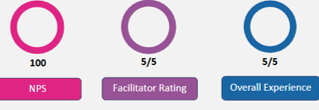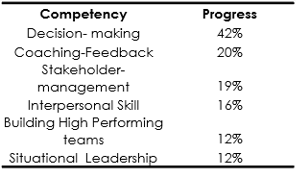What Are the Different Types of Leadership Development Programs?

Leadership development programs come in various forms, each tailored to meet specific needs and goals. Understanding these different types can help you choose the right path for yourself or your organization. Let’s dive into the main types of leadership development programs and discover what makes each one unique.
Types of Leadership Development Programs

1. Formal Leadership Development Programs
One of the most common forms of leadership development is the formal program. These structured initiatives are usually offered by companies or educational institutions, featuring a well-defined curriculum. Participants engage in workshops, classroom learning, and hands-on activities that cover essential leadership skills like decision-making, communication, and emotional intelligence.
A significant advantage of these programs is the mentorship opportunities they provide. Participants often work with experienced mentors who share valuable insights and guidance, helping them apply what they learn in real-world situations. Plus, many formal programs offer certifications, which can enhance your professional profile and open new doors in your career.
Research suggests that organizations with strong leadership development programs see significantly higher engagement levels and cultural alignment. For instance, 85% of executives rank employee engagement as a top priority, while 84% emphasize the importance of continuous learning opportunities. Source: Deloitte Global Human Capital Trends Report.
2. Executive Coaching Programs
If you’re looking for something more personalized, executive coaching might be the answer. This approach focuses on the individual needs and challenges of high-level leaders. Through one-on-one sessions with a coach, executives receive tailored support that addresses their specific leadership obstacles.
In this intimate setting, leaders can dive deep into their personal styles and growth areas. Coaches provide real-time feedback and thus allows leaders to make immediate adjustments and improvements. This type of program is perfect for those who want to refine their skills and enhance their impact in a focused, meaningful way.
3. Emerging Leaders Programs

For those just starting their leadership journey, emerging leaders programs are a fantastic option. These programs are designed to help individuals build foundational skills essential for effective leadership. Participants learn vital abilities like conflict resolution and effective communication while gaining hands-on experience through real-world projects.
Networking is another significant benefit of these programs. Emerging leaders connect with peers who share similar aspirations, creating a supportive community that fosters growth and collaboration. This environment can be invaluable for young professionals eager to make their mark and build their careers.
4. Experiential Leadership Development Programs
Experiential leadership development programs focus on learning by doing. Participants are placed in real-world or simulated environments where they tackle challenges that mirror the complexities of leadership roles. This hands-on approach helps develop critical skills like problem-solving, teamwork, and decision-making in a dynamic context.
These programs often include activities such as simulations, role-playing, outdoor team-building exercises, or real-time project management tasks. The immersive nature of experiential programs ensures participants not only learn new skills but also practice applying them in realistic scenarios, making the learning highly impactful and memorable.
Why Leadership Development Matters

Understanding the different types of leadership development programs is essential, but it’s also crucial to recognize their significance for organizational success. Investing in these programs benefits individuals and strengthens the entire organization.
Improved employee retention is one of the key advantages. When employees see opportunities for growth, they’re more likely to stay with the company. Additionally, trained leaders are better equipped to make informed, strategic decisions that positively impact their teams and the organization as a whole.
Moreover, effective leaders inspire and motivate their teams, leading to improved performance and a more positive workplace culture.
A report by Gallup reveals that 87% of millennials consider development opportunities a key factor in deciding whether to stay at their job, highlighting the critical role of leadership development in employee retention. Furthermore, the 2023 LinkedIn Learning Workplace Learning Report found that companies focusing on internal growth pathways experience significant improvements in employee loyalty and satisfaction.
In conclusion, whether you’re looking to enhance your own leadership skills or develop future leaders within your organization, exploring the various types of leadership development programs is vital.
At Meeraq, we offer a range of tailored leadership development programs designed to create impactful leaders who drive success. Discover more about how our programs can help you and your organization thrive by visiting Meeraq’s Leadership Development Programs. Take the next step in your leadership journey today!












